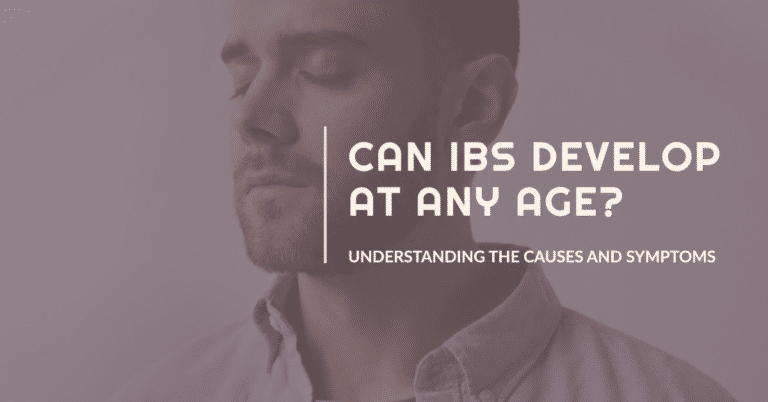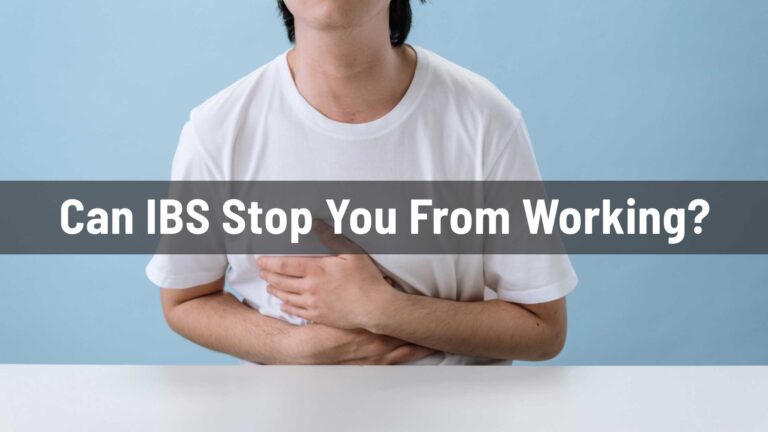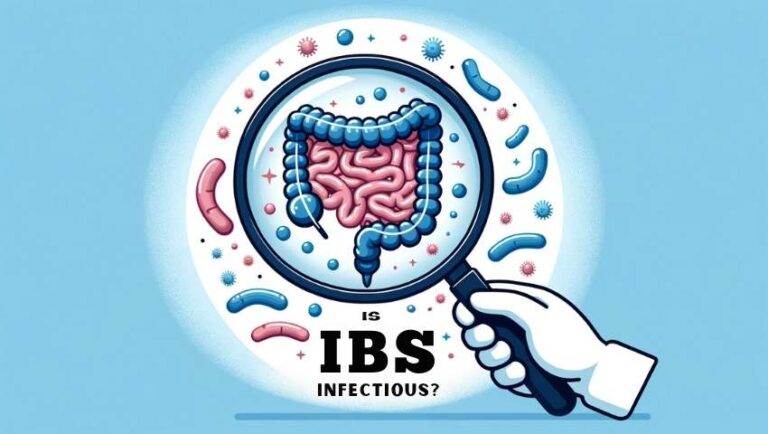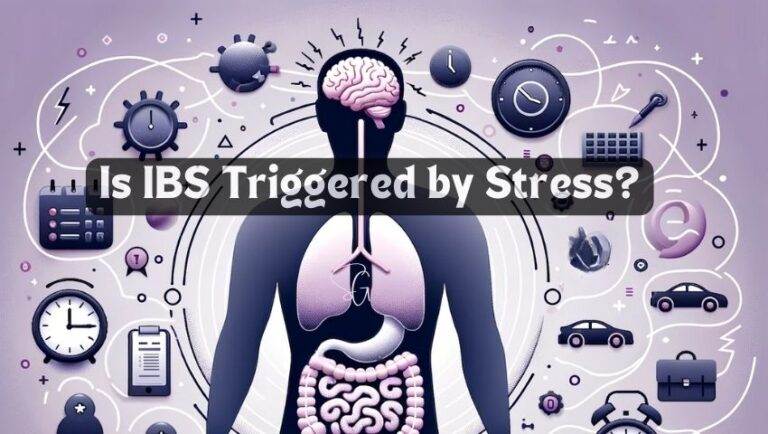Does IBS Cause Weight Gain? – Tipping the Scales on Irritable Bowel Syndrome
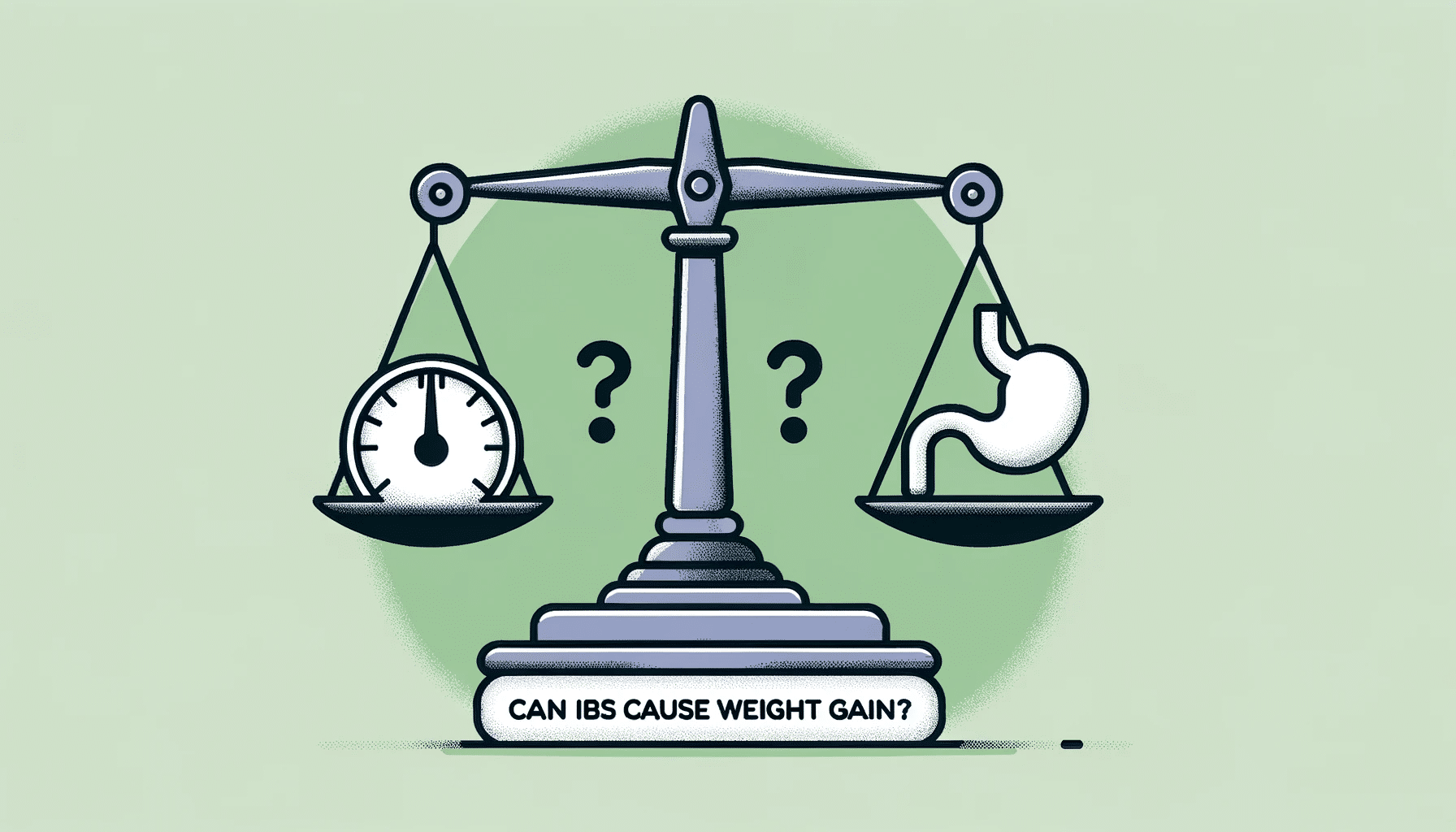
Ah, the scale. That number can be a source of joy, stress, or confusion.
Especially when you’re dealing with irritable bowel syndrome (IBS). You might be wondering, “Does IBS cause weight gain?”
The short answer is, it’s complicated.
IBS can lead to weight fluctuations, but it’s not a direct cause of weight gain.
Intrigued? Stick around; we’re about to dive deep into this gut-wrenching topic.
Key Takeaways
- IBS can lead to weight fluctuations but isn’t a direct cause of weight gain.
- Emotional eating can be a side effect of IBS symptoms.
- Medications for IBS may have weight gain as a side effect.
- Lifestyle changes can help manage your weight with IBS.
- Always consult a healthcare provider for personalized advice.
Can IBS Really Affect Your Weight?
You’ve got IBS. Your tummy’s a turmoil of constipation one day, diarrhea the next. But what’s this got to do with the number on the scale? Well, IBS can indirectly affect your body weight.
While it’s not a direct cause of weight gain, the symptoms of irritable bowel syndrome can lead to lifestyle changes that may cause your weight to tip the scales.
For instance, some people with IBS may find themselves avoiding certain foods that trigger their symptoms.
Following a diet that’s less balanced is often the result, possibly causing weight changes.
So yes, while IBS doesn’t directly cause weight gain, it can set off a domino effect that impacts your weight.
Emotional Eating and IBS
Stress and IBS go together like peanut butter and jelly, but not in a good way. Stress can exacerbate IBS symptoms, and those symptoms can, in turn, stress you out.
It’s a vicious cycle. And where does that lead? Emotional eating.
When you’re stressed, you might find comfort in food. Unfortunately, emotional eating can contribute to weight gain.
It’s common for people with IBS to seek solace in foods that might not be the healthiest choices. If you’re struggling with emotional eating due to IBS, you’re not alone.
There are ways to improve your eating habits, and it starts with being aware of the triggers of IBS.
Medication Side Effects: A Hidden Culprit
Ah, the pharmacy aisle. A place of hope and…side effects? Yep, some medications prescribed for IBS symptoms can have weight gain as a side effect.
If you’ve noticed a change in weight since starting medication, it might not be a coincidence.
Common medications like antispasmodics and certain antidepressants used for IBS can lead to weight gain.
Always read the fine print and consult your healthcare provider for alternatives if weight gain becomes a concern.
For more on this, check out my article on the best IBS supplements.
Diet Changes Due to IBS
Let’s talk food, shall we? When you’ve got IBS, your diet can look like a minefield. Foods that are your friends one day can turn into foes the next.
Many people with IBS find themselves avoiding foods like onions, which are high in FODMAPs, to ease their IBS symptoms.
But what happens when you cut out certain foods? You might end up with a diet that’s less than ideal.
For example, avoiding high-fiber foods due to IBS can result in a diet that’s rich in carbohydrates and low in nutrients.
Ultimately, this could make you weight gain over time.
The Role of Gut Health in Weight Management
When it comes to IBS, your gut health plays an important role not just in digestive issues but also in weight management.
The gut is a complex ecosystem, and when it’s out of balance, it can wreak havoc on your body weight.
For instance, an imbalance in gut bacteria can lead to digestive problems like constipation or diarrhea, which can then affect your weight.
If you’re experiencing constipation, you might notice weight gain due to water retention and stool buildup.
On the flip side, diarrhea can lead to temporary weight loss due to fluid loss. But remember, these are not healthy or sustainable ways to manage your weight.
For a more in-depth look at how gut health affects weight, check out my guide on gaining weight with celiac disease.
The FODMAP Diet: Friend or Foe?
Many people with IBS turn to the low-FODMAP diet to manage their symptoms. FODMAPs stands for ‘Fermentable Oligosaccharides, Disaccharides, Monosaccharides, and Polyols’.
These are types of carbohydrates that are known to trigger IBS symptoms. But what’s the deal with FODMAPs and weight?
The low-FODMAP diet can be restrictive, cutting out many foods high in certain carbohydrates. Weight loss or gain can then occur consequently, depending on what you replace those foods with.
For example, if you replace high-FODMAP foods with high-calorie alternatives, you could gain weight.
On the other hand, if you opt for lower-calorie foods, you might lose weight.
For more on this, our article on can going gluten-free help you lose weight offers some insights.
The Psychological Aspect: Stress and Weight with IBS
Let’s not underestimate the power of the mind in all of this. Stress is not just a trigger for IBS symptoms; it’s also a known factor in weight gain.
When you’re stressed, your body releases cortisol, a hormone that can lead to weight gain, particularly around the abdominal area.
Many people with IBS may find themselves in a stress-IBS-weight gain loop.
Stress triggers your IBS, your IBS symptoms make you more stressed, and the increased stress leads to weight gain.
Breaking this cycle involves not just managing your IBS symptoms but also finding effective ways to manage stress.
For some actionable tips, check out my guides on irritable bowel syndrome self-care tips and how I learned to get my IBS symptoms under control.
Exercise and IBS: The Weighty Issue
When it comes to IBS, exercise is a double-edged sword. It’s a boon for stress relief and weight management, but it can also stir the pot of your IBS symptoms.
Activities like running or high-intensity workouts might aggravate symptoms of IBS including diarrhea and abdominal pain.
On the flip side, low-impact exercises such as walking or swimming can be easier on your digestive system and help you manage your weight.
For more insights, check out my article exploring the link between IBS and exercise.
Emotional Well-Being: The Overlooked Factor
Anxiety and depression are often the uninvited guests in the life of someone with IBS. These emotional states not only trigger IBS symptoms but can also lead to weight gain.
Stress releases cortisol, a hormone associated with weight gain, particularly around the abdominal area.
For those interested in the psychological aspects of IBS, it’s well worth learning more about gut-directed hypnotherapy with Nerva IBS.
Hydration and IBS: More Than Just Quenching Thirst
Drinking plenty of water is essential for everyone, but it’s especially crucial for people with IBS.
Proper hydration can ease your IBS symptoms like constipation and bloat. It also plays an important role in weight management.
Water can help you feel full, reducing food intake and aiding in weight loss.
However, certain beverages like caffeinated drinks can exacerbate IBS symptoms and contribute to weight gain.
Does IBS Cause Weight Gain? – A Summary
Living with IBS can feel a bit like you’re a contestant in a game show where the rules constantly change.
What you eat, how you’re feeling emotionally, and even how much water you’ve had to drink can all throw a wrench in your efforts to keep your weight stable.
Though IBS itself isn’t the culprit behind weight changes, it sure knows how to complicate things.
The symptoms of IBS and the lifestyle changes it necessitates can definitely have an impact on your scales.
But remember, this isn’t a solo mission.
With the right mix of strategies, a pinch of grit, and a whole lot of resilience, managing your IBS symptoms while maintaining a healthy weight is entirely possible.
And let’s not forget the importance of professional medical advice. Always reach out to a healthcare provider who can give you advice that’s as unique as you are.
Disclaimer: This content is based on my personal experience as an individual diagnosed with celiac disease and IBS (Irritable Bowel Syndrome) who follows a strict gluten-free diet. This does not constitute medical advice. Please consult a medical professional, nutritionist, or qualified dietitian for personalized, professional advice.

